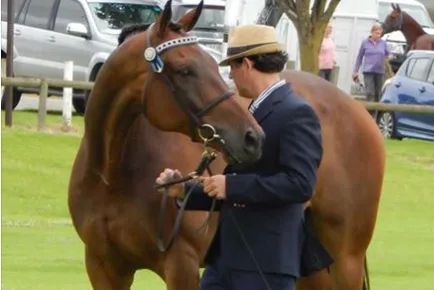Close
Our Products
All Products
Pleasure
Performance
Conditioning
Fibre
Breeding & Stud
Racing
Specialty
Supplements
Quick Feed finder
Free Diet Analysis
The Complete Range
Nutrition Centre
Articles
All About Fibre
Feeding for Condition
Competition Season
Laminitis
Breeding
Foal care
Building Topline
Gut Health
Senior horses
Racing & Breeding
Feeding in a Drought
Tools & Calculators
Competitions / Offers
Our Riders
Brand ambassadors
Junior Squad
About Barastoc
Why Barastoc
Our commitment
Barastoc's People
Our communities
Partnering with KER
Partnering with BHF
Sustainability
Find a Stockist
Contact Us

Feeding Tips to Support Gut Health
Horses have a specialised digestive system designed for the continuous ingestion of grass and other forage. When we mess with this system, such as limiting forage, we can very quickly cause gastrointestinal upsets that can have serious consequences. Problems are more often due to poor feeding management rather than the feed itself.
The following points are important in keeping a horse’s digestive system functioning smoothly.
Horses must have adequate fibre intake throughout the day, which closely mimics the horse’s evolutionary adaption to eating. Always offer at least 1% of body weight in forage (hay, chaff, pasture), ideally 1.5%. For example, a 500kg horse requires between 5-7.5kg forage (dry matter) per day. Look for low-sugar hays for over-weight horses, so that recommended daily intake can be achieved to maintain gut health.
Ensure forage is available 24/7. If pasture grazing is unavailable, then ad-lib hay must be provided. Hay nets or constant small hay meals ensure your horse never has an empty stomach. Slow-feeder hay nets are helpful for greedy or overweight horses.
More frequent and smaller meals greatly decrease feeding-related problems. Never offer more than 2.5kg of grain per meal. Divide grain into 2 of more feeds per day.
Within reason, regularity of feeding is crucial. Horses thrive on routine – upsetting the routine can cause stress, which can negatively affect gut function.
Offer hay or chaff before exercise so that the horse is not worked on an empty stomach. A small meal of high fibre feed/hay will provide a ‘raft’ within the stomach preventing acid splash during exercise and protect the sensitive gastric mucosa. Research has shown lucerne hay/chaff, has a buffering effect on the stomach and is a good choice to feed before exercise.
Eliminate the possibility of bad feed. Proper storage of feed is crucial to the prevention of mould, rancidity, and loss of feed quality.
Feed by weight, not volume. The bulk densities of feeds vary significantly, and feeding “by the scoop” is not appropriate.
Free choice access to clean water, except immediately after intense exercise, will keep the digestive system functioning.
Ensure regular checks by a veterinarian or qualified equine dentist to maintain functional dentition.
Routinely worm your horse, ideally after a regular faecal worm counts to ensure the correct anthelmintic is used.
Engage the help of a qualified equine nutritionist to design the best diet for your individual horse.